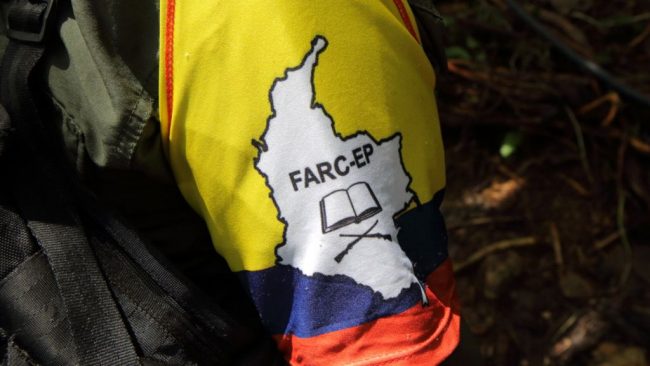Reuters Boosts Latina Communists’ Sob Story About ‘New Macho World’

On Monday, Anastasia Moloney gave six female members of FARC a platform to “counter false propaganda spread by…enemies” regarding the apparent “real gender equality” inside the Colombian communist insurgent group. Moloney, the Thomson Reuters Foundation’s Latin America correspondent, highlighted their claim that “there’s no machismo” in FARC, and touted that the “demobilized women guerrillas may struggle to enjoy such equality once they reintegrate into civilian life in a society known for its patriarchal and macho culture. ”
The journalist led her item, “Equals in the jungle, Colombia’s women guerrillas brace for new, macho world” (which was cross-posted on NBCNews.com), by noting how FARC member “Gladis” was “expected to fight on the frontline alongside her FARC guerrilla comrades, hoist heavy loads and stand guard, just as the men in rebel ranks did.” After dropping her “real gender equality” phrase, Moloney continued with two quotes from “Gladis:” “‘We are all equal here. Everyone is treated the same,’ said Gladis, at a mountaintop demobilization zone in northern Colombia where around 160 FARC fighters have gathered to disarm. ‘Men respect us here. There’s no machismo,’ she said.”
The correspondent pointed out that the female communist’s claims run contrary to allegations from “the [Colombian] government, former rebels who deserted and rights groups [who] have said gender inequality played out in the jungle as it did elsewhere, and women suffered abuse in FARC ranks, including forced abortions and being commanders’ sex slaves.” Moloney held off on further outlining these claims against FARC. Instead, she devoted fifteen paragraphs to the female members’ testimony against the supposed “false propaganda:”
“I think taking up arms was the best decision I ever made,” said Gladis, wearing a sparkly silver top. “I’m proud to be a guerrilla.”
(…)
Women held important jobs, were appointed as commanders, and the FARC brought several women to the negotiating table during four-year long peace talks with the government.
(…)
“The participation of women has been indispensable,” said Solis Almeyda, a veteran FARC commander, who still uses his nom de guerre. “Women could go undetected when carrying out intelligence gathering.”
Yet demobilized women guerrillas may struggle to enjoy such equality once they reintegrate into civilian life in a society known for its patriarchal and macho culture.
In parts of mainly rural Colombia, women are often viewed as child-bearers and are expected to stay at home.
“We hear women are paid less than men and that it’s difficult for women to hold top positions,” said 37-year-old Sara Narvaez, who has spent two decades in the FARC…
The Bogota-based journalist finally returned to the allegations of sexual abuse by the communist rebels saying that “in 2015, Colombia’s attorney general said it was investigating 150 cases of former women guerrillas who had given testimonies saying they were forced to end their pregnancies.” She soon added that “the government and rights groups have collected scores of testimonies from women, mostly from civilians living in areas once controlled by the FARC, that they were victims of sexual violence at the hands of rebel fighters – crimes FARC commander Almeyda denied.”
Maloney ended her article by spotlighting how female FARC members are now having children or are being reunited with children they left in the care of family members during the armed conflict:
…Camila Norma, who is four months pregnant, is also looking forward to raising her child in a new era of peace.
“My dream for my child is that he will have all the guarantees to an education,” said Norma, 26, sporting red painted fingernails. “My dream is that he can become someone in his life.”
This is an opinion piece. The views expressed in this article are those of just the author.
New: The Mediaite One-Sheet "Newsletter of Newsletters"
Your daily summary and analysis of what the many, many media newsletters are saying and reporting. Subscribe now!






Comments
↓ Scroll down for comments ↓